Reflections on being a Graduate Ecologist. Part 1; Field Skills
I fell into consulting in 2012, after completing an undergraduate and a master’s degree back-to-back. Not having planned to enter the field, I had next to no work experience and relatively little idea of what consultancy involved, nor the potential pitfalls awaiting a naïve graduate such as me.
I first put pen to paper on this subject three years into my career, and now that I’m nine years in, I can take a look back over those thoughts with a more experienced eye.
I have now worked for three different companies: a relatively small ecological consultancy (BiOME) and two engineering consultancies, one with a small team of ecologists and the other a large team. During this time I’ve worked on projects of all shapes and sizes, from HS2, large coastal defence projects and a nuclear power station through to small housing improvements and surveys for SSSIs. Hopefully the lessons I’ve learnt will be of interest to all graduate ecologists.
Part 1: Field skills
As a general rule, field skills, and especially that of species identification, can’t be gained overnight. As a consultant, your ecological knowledge needs to be both broad and deep. Ecology is about interactions, after all, and there are some infamous examples of where a little knowledge has caused a lot of damage. A graduate who thinks they know a lot is likely to be both irritating and a liability. It’s simply not possible to be an expert at everything, but you do need to be aware of your blind spots – and they tend to become apparent only gradually, as you delve into a topic. Geographical knowledge is important here too: a species’ or habitat’s significance can vary hugely in different parts of the UK.
One of the most useful skills you can develop is to get to know and understand the different habitats, since they underpin everything. If you can recognise the differences, sometimes subtle, between common and scarce habitats, and what good examples of each look like, then you have a great base to build upon. It can tell you a lot about the likely importance for other species groups. Paying attention to your surroundings outside work and spending time in different parts of the UK can be a great help in this regard, as most consultancy work tends to lead to exposure to the same suite of habitats, which are generally not in pristine condition.
Unfortunately, there’s no substitute for hard graft in developing your survey skills. Working for a consultancy where there is a ‘no lone working’ policy (typically large consultancies) can help, enabling you to spend time with more experienced ecologists, but you’ll progress very slowly if that’s all you rely on, and ultimately you are unlikely to become a good ecologist. Conversely, small consultancies tend to provide exposure to a large number of projects quickly, but you’re unlikely to get as much field time with other skilled surveyors and you risk developing only superficial knowledge if you don’t put in time outside work. It can be very hard to motivate yourself to do that, but the payouts are priceless. The difference between good and less good field ecologists is apparent at all professional levels, and you need to make the most of your early-career time.
It’s also helpful to understand the system within which consultant ecologists operate. This varies depending on the project. Understanding the purpose of your data collection, how it will be analysed and what the eventual product and implications will be can give a very useful perspective when you’re in the field. Working for larger consultancies I found that this understanding came relatively late for me, as the projects tend to be larger and take longer to complete, and you have a very limited view of the process as a graduate. Conversely, one benefit of working for larger consultancies where ecology is only a part of what they do is that you can gain an understanding of how ecological considerations interact with others, such as air quality and socio-economics. Conversations with colleagues in other disciplines, especially early in the process, can yield significant benefits for nature. For example, you might be able to influence the work of landscape architects to achieve a better habitat network.
Conversation is always to be encouraged, and, in the field, conversations with locals can go a long way too. They can be tricky to navigate as people will inevitably be interested in the project, some of which can be very contentious, but for the most part people take a positive interest in nature and what we do. As a local they’re likely to be on site much more than you can be, and may well pick up things you miss. Treat the information with caution – Barn Owls are often confused with Tawny Owls, for example – but don’t rule it out, and follow it up; laypersons (especially farmers) are often more nature-savvy than they might first appear.
As a naturally diligent sort of person, one thing I wasn’t prepared for was the fact that my diligence might wane. However, this can be a challenge for anyone by the time you’ve recorded your thousandth Common Pipistrelle or Blue Tit of the season, especially when working on an unpromising site. But it goes without saying that it’s important, and in biology you should always expect the unexpected. As a birder, I try to remain diligent by aiming to find a scarce bird at every site (even if it seems very unlikely!). One of the most boring sites I’ve worked at – alongside a busy A-road in inland Cheshire – memorably yielded Great White Egret, Hawfinch and Firecrest, making counting all those Blue Tits absolutely worth it!
Finally, if you’re lucky enough to have a particular interest in a taxonomic group, follow it. Not only does this make the ‘hard graft’ aspect of your development much less onerous, you can develop a very useful string to your bow from a CV perspective: taxonomic specialists can be hard to come by. You might also gain the less tangible benefit of steering best practice in that area within your consultancy. Don’t assume that your senior colleagues always know best – understanding and awareness varies considerably between consultancies and individuals, and in ecology there is always more to know. Having a positive influence in this way may be harder to achieve in a large consultancy, but it’s not impossible, and the benefits can be far-reaching.

